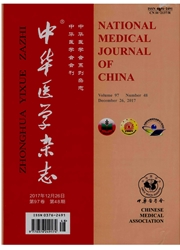

 中文摘要:
中文摘要:
目的研究经典Wnt信号传导通路对宫骶韧带成纤维细胞增殖和分泌的影响,从分子水平解释盆腔器官脱垂的发病机制。方法选择2010年10月至2011年5月北京协和医院盆腔器官脱垂(POP)患者5例,按盆腔器官脱垂定量(POP-Q)分度法分度,5例均≥Ⅲ度。选择无POP的妇科良性疾病患者5例作为对照组。标本取白宫骶韧带,以1%Ⅰ型胶原酶消化法进行宫骶韧带成纤维细胞的原代培养。采用差时贴壁法对成纤维细胞进行纯化;利用细胞免疫组织化学染色法对体外培养的成纤维细胞进行鉴定;以四唑盐比色实验检测宫骶韧带成纤维细胞的生长增殖活性、蛋白印迹检测宫骶韧带成纤维细胞中基质金属蛋白酶2(MMP-2)、Wnt16、FzD5和β-连环蛋白的表达。结果(1)免疫组化鉴定:〉90%的细胞,波形蛋白(+),角蛋白(-)。(2)四唑盐结果证实:POP组成纤维细胞的生长增殖活性明显小于对照组(P〈0.01)。(3)蛋白印迹证实:POP组宫骶韧带成纤维细胞中的MMP-2明显高于对照组(P〈0.05);POP组宫骶韧带成纤维细胞中的Wnt16、β-连环蛋白明显低于对照组(P〈0.05),FZD5显著高于对照组(P〈0.01)。结论POP患者宫骶韧带成纤维细胞中经典Wnt16信号传导通路可能受到抑制,细胞的生长增殖活性被抑制,分泌胶原蛋白的能力下降,升高的MMP-2又促使胶原的降解增加,导致盆底支持结构薄弱并诱导POP的发生。
 英文摘要:
英文摘要:
Objective To explore the effects of canonical Wnt signaling trausduction pathway on the proliferation and secretion of fibroblasts of uterosacral ligament so as to elucidate the pathogenic mechanism of pelvic organ prolapse (POP). Methods Five patients with grade ≥Ⅲ POP and five with other benign gynecologic disorders as control were recruited. Specimens were taken from uterosacral ligaments and fibroblasts were cultured and purified. After the confirmation of cultured fibroblasts by immunohistochemical staining, their growth and proliferation activity were detected by thiazolyl blue tetrazolium bromide (MTT) assay and the expressions of matrix metal proteinase-2 (MMP-2), Wntl6, FZD5 and β-catenin by Western blot. Results ( 1 ) Over 90% of the cultured cells were fibroblasts of vimentin positive and keratin negative. (2) The growth and proliferation activity of fibroblasts were significantly lower in the POP group than those in the control group (P 〈0. 01 ). (3) The levels of MMP-2 and FZD5 in the POP group were significantly higher than those in the control group (P 〈0. 05 and P 〈0. 01 respectively) while those of Wntl6 and β-catenin were significantly lower than the control group ( both P 〈 0. 05 ). Conclusions Canonical Wntl6 signaling transduetion pathway becomes inhibited in the fibroblasts of POP patients resulting in lower growth and proliferation activity and reduced secretion of collagen. Elevated MMP-2 contributes to the increased degradation of collagen. And MMP-2 and Wnt16 signaling transduction pathway may be important factors for the changes of collagen state in pelvic organ support structures leading to POP.
 同期刊论文项目
同期刊论文项目
 同项目期刊论文
同项目期刊论文
 期刊信息
期刊信息
